Last fall, Google's Motorola group unveiled its Moto X and Apple released its middle-tier iPhone 5c. Across the board, pundits and reporters portrayed the 5c as a grave mistake that got everything wrong while lavishing Google's Moto X with praise. Why were they so incredibly wrong?
While we don't have exact sales numbers for either model, it is now clear that iPhone 5c was a remarkable success, not just as 2013's second most popular smartphone of the holiday season (after Apple's top of the line iPhone 5s), but also in its intended strategic roles as both a mid-market smartphone and a compelling Android alternative.69 percent of iPhone 5c buyers were new to iPhone, while 60 percent had switched from an Android phone
Speaking to analysts during Apple's Q2 earnings conference call, chief executive Tim Cook stated that 69 percent of iPhone 5c buyers were new to iPhone, while 60 percent had switched from an Android phone. For the cheaper iPhone 4S, the ratios were even higher (although the sales volumes were much smaller): 85 percent were new to iPhone, while 62 percent switched from Android.
"And so we're incredibly pleased with this," Cook stated.
Of course Cook was pleased! Apple managed to pull off something that had previously seemed completely impossible: it continued to sell premium, luxury class $650 iPhones at prices three times higher than the volume sales of the overall smartphone market, without making significant concessions on either margins and profitability or, more importantly, without giving up valuable market share.
In fact, in the most valuable markets, Apple achieved meaningful (and in some cases incredible) increases in market share. Apple's iPhone achieved 55 percent market share among smartphones in Japan, Cook noted.
The company's corporate controller Luca Maestri drew attention to growth in the very developing markets where analysts had insisted that Apple's iPhone mix was incorrectly priced and configured, stating, "In Greater China, Brazil, Indonesia, Poland and Turkey, iPhone sales grew by strong double-digits year-over-year, and in India and Vietnam sales more than doubled."
Virtually everyone who had offered an opinion about Apple's iPhone mix got everything wrong. Apple not only launched the world's best selling phone with enough innovative features to impress the company's own customers to buy an upgrade, but also managed to convert its "last year" best seller into a lower priced middle tier phone with the ability to win over Android users better than all of the leading Android flagships. Apple was so incredibly successful that it even surprised Apple.
On the other hand, there was no talk from anyone about how many "middle tier" phones Samsung sold, nor even any curiosity about the specific product mix that was driving that "80 percent" ratio of Android phones.
Foolish advice for the successful: be more like the failures
Apple's iPhone sales held ground even as budget phone makers (that is to say, everyone else in the industry) had to slash their prices and scale back in quality to make what Samsung describes as "carrier friendly good enough" products, while watching their high-end sales stagnate and their margins collapse.
Apple was the star athlete of 2013, but rather than getting a parade, it got lots of advice to more closely mimic the lessor players that were failing around it. The most outlandish ideas gained so much traction that everything being said toward the end of 2013 pretty much boiled down to repeating the idea that Apple, long the world's most successful mobile company, was in dire trouble in various respects and doing virtually everything wrong.
Recall that critics of the 5c have even recently discussed among themselves whether Apple should quietly discontinue the model, drastically discount it, or simply spend billions on advertising intended to "clear inventory" for the next batch of iPhones due six months from now in October.
That's a lot of unplugged advice being dumped upon the smartest guy in the room, particularly when the reality is that iPhone 5c is selling well and stealing away Android buyers for the majority of its sales.
No concern or condescending advice for Google
In stark contrast, no drastic measures were recommended for fixing Moto X. In fact, even as Google slashed the price there were no concerns being voiced about its ability to sell, to attract new buyers, or even to make nominal amounts of money. There was only some talk about the next Moto X, which whimsically might be called the Moto X+1.
Even the Wall Street Journal couldn't bring itself to describe Google's price slashing of the Moto X (from $550 to $399) as a desperate measure to move inventory. Instead, Rolfe Winkler wrote that the "move continues the assault on its rivals' high margins." And just to get that point across, it put that phrase in the story three times: a headline subhead, a photo caption, and in the first paragraph.
No, I'm not making this up as elaborate satire. This is the kind of apologetic absurdity that now passes for content acceptable to publish in something like the Wall Street Journal.
Despite all the media pampering for Google, the reality in this case was that Motorola lost over $700 million for Google in just the last six months of Moto X sales.
Moto X— and everything else that Motorola attempted during the holiday season— all failed on a scale far worse than Apple at its most beleaguered in the darkest days of 1996, several years after the dead-ended Newton Message Pad, Performas, QuickDraw GX, PowerTalk, Copland and various other boondoggle products Apple had been fruitlessly wasting its remaining resources on began piling up like rotting carcasses in the sun.
Google's $12.5 billion attempt to enter the hardware business resulted in catastrophic disaster worse than the Old Apple under Michael Spindler: institutional failure on a legendary scale. It's not just that nobody noticed. The media can't not be aware. The emperor is just wearing the finest clothes, so it's hard to actually articulate that he is actually, well, for lack of a better word, not actually wearing anything, like what you might call garments.
Nobody in the industry could have possibly expected Google's Motorola group to outsell Apple's iPhone. But why were reporters and pundits so fooled by their own echo chamber of opinion and Android bias that they failed to correctly identify the fates of two products that, to any intelligent, neutral observer, were quite obviously fated to result in additional, continued success for Apple's blockbuster iPhone franchise and additional losses at Google's limping Motorola's unit?
Why do we have to pretend that Google's two year old acquisition-experiment in taking over a commercial failure, the manufacturer that produced the Xoom tablet, is really on the same level as the industrial design and platform development of a far larger company with decades of experience in building hardware and managing a software platform?
By 2012, Google had already firmly established that it was completely incompetent at building and marketing hardware, while Apple had completely decimated the entire portfolio of smartphone vendors that had been the established leaders when iPhone first appeared. As a bonus, Apple had also managed to develop and deliver iPad as a tablet system that strangled the netbook and checked the growth of the entire world's PC producers. Apple wasn't exactly floundering on its back.
Google's 2000s-era web ads begin to collapse
It wasn't a fluke that the Moto X flopped. Google has only ever flopped in its hardware experiments. But make no mistake: Google desperately needs a hardware business, and it knows it needs a hardware business. That's why it has spent incredible billions trying to buy its way into the hardware game, first with Motorola and then with Nest the moment it found a buyer to offload Motorola.
Why the need for a presence in hardware? First, Google's partners have been terrible at implementing Google's reference designs across the board. Additionally, Google just announced results for the March quarter that outlined that the profitability of its core ad business is collapsing, with 26 percent more clicks resulting in 9 percent less revenue. Google just announced results for the March quarter that outlined that the profitability of its core ad business is collapsing, with 26 percent more clicks resulting in 9 percent less revenue.
Compare that against Apple's opposite situation, where its core competency in hardware is progressively getting more profitable as its hardware sales have grown rapidly and into new markets, branching off into new product categories.
Google also detailed that the vast majority of its ad business is stuck on top of the plateauing dinosaur of the desktop PC, and that it hasn't rapidly adapted to the new era of mobile devices (the way that, say Facebook, has). That shouldn't even be slightly surprising to anyone paying even cursory attention to the mobile market.
On mobile devices, Google's ad-centric business is not just failing to generate 2000s-era ad paid ad placement search profits; it's actually failing to replicate the usage patterns that might lead to that ever happening in the future.
Steve Jobs pointed out four years ago that Apple had discovered that mobile users were different from desktop PC users in that they don't start with Google's search in the web browser when looking for entertainment, information or products to buy. They use mobile apps.
"On a mobile device," Jobs noted, "Search is not 'where it's at.' People aren't searching on a mobile device like they do on the desktop. What's happening is that they're spending all their time in apps. When people want to find a place to go out to dinner, they're not searching. They're going into Yelp. They're using apps to get to data on the Internet, rather than a generalized search. And this is where the opportunity to deliver advertising is."
When he said that, it wasn't too surprising because we all knew that. The revenues Google is seeing from mobile are far lower than yesterday's web PC ads, and Google hasn't been able to get a toe into the mobile hardware market where Apple is earning its billions, despite many attempts.
You wouldn't know from mainstream media reports, but Google's latest innovation for reaching mobile ad audiences (launched around the same time as Moto X) is a copy of what Jobs presented three years previously back in 2010.
What you would find from reading media reports is that the iAd that Jobs launched was a "failure" because Apple "slashed its prices" in a desperate bid to find advertisers.
It's unfortunate that the media kept saying that, because it wasn't true. Most bizarrely, Apple wasn't cutting its rates; it was cutting the minimum spend required to sign up for iAd, from $1 million to $400,000 to $100,000 as the company built out its advertising staff over its first two years.
Apple has big name advertisers paying millions of dollars to participate in iAd, as anyone to listens to iTunes Radio for free knows. In contrast, if you browse third rate content on the web, you'd see lots of Google's ads desperately trying to sell Nexus 7 (a campaign that didn't work so well, which says something about the efficacy of indiscriminately placed display ads).
Google even mocks significant web properties by up putting trash ads on their sites, like this "Find a Wife from Asia" ad in a news story of the San Jose Mercury News. That's even in Google's backyard, and yet nobody in the media seems capable of observing the trajectory of Google's mobile ad efforts, even as they fall all over themselves to castigate Apple's iAd.
It's as hard to imagine Apple approving an iAd spot for human trafficking as it is to imagine a reporter skewering Google for "slashing" its ad prices in order to find lowbrow clients who can't afford its million dollar plans. The media didn't even really like to talk about Google's flagrantly illegal ads for illicit drugs, a matter that cost the company a $500 million fine. Compared to that, their own petty hypocrisy is hardly even a story.
Google's Motorola hardware aspirations die in a fire of multimillion dollar losses
A series of attempts to be just like Apple (Google TV, Honeycomb tablets, Nexus phones and tablets, ChromeBooks, buying Motorola Mobility and attempting to develop a hardware business) have ended up as massive, wildly unprofitable failures for Google.
"Moto X is the first in a series of hardware products that Google hopes will supercharge the mother company's software and services" - Steven Levy, Wired
In fact, today's Google looks an awful lot like Apple of the early 1990s: rolling out expensive gadget hardware without a clear purpose; working on lots of conceptual software pies in the sky without any apparent business model, and taking everyone else's advice and running with it until dropping from exhaustion.
Motorola has been such a boondoggle that Google resorted to creative "non-GAAP" accounting in order to hide the fact that its subsidiary lost another $198 million over the last quarter alone. Motorola is now Google's "discontinued operations," the new euphemism for what was supposed to be Google's next big thing.
Just eight months ago, Steven Levy described Google's $12.5 billion purchase of Motorola as "the company's biggest deal ever, far exceeding previous big buys like YouTube for $1.7 billion and DoubleClick for $3.1 billion."
In a high production ad brochure posing as a Wired news article entitled "The Inside Story of the Moto X," Levy continued, "What was Google thinking? Finally, we have the answer. The Moto X, announced today, marks the arrival, finally, of the Google Phone. The Moto X is the first in a series of hardware products that Google hopes will supercharge the mother company's software and services."
Instead, just months later Google's entire Moto hardware subsidiary has done nothing but incinerate $704 million across the last two quarters. The whole operation, including a second, even cheaper Moto G phone that also failed miserably, is now not only being sold off for scrap but isn't even being acknowledged by name in Google's financial summary.
And not hardly a peep about any of it from anyone in the media.
iPhone 5c Failure-Creation Science
Instead, over the same period that Google's hardware experiments at Motorola were hemorrhaging hundreds of millions of dollars, the public has been subjected to a constant din of "research" intending to describe exactly how and why Apple's iPhone 5c failed, if not commercially, then at least in some sort of philosophical or metaphorical way.
When Apple's chief executive Tim Cook explained in the company's January earnings call that, for the top of the line iPhone 5s, Apple had seen "growth in that portion of our line despite adding a new phone - an entirely new phone underneath it," analysts were so confused by their own belief system that they decided that this unexpected demand must somehow be upside-down doublespeak.
Asked about how well iPhones, and particularly the 5c, were doing at attracting former Android users rather than just upgrading Apple's own customers, Cook answered, "we particularly saw that [new user growth] on the 5c, which is what we wanted to see."
iPhone 5c not only attracted away lots of Android users; it also managed to outsell every Android flagship, including the vaunted Moto X, but also even Samsung's Galaxy S 4 flagship, the world's top selling Android phone. In fact, in one quarter the 5c managed to outsell a year's worth of sales of a wide variety of Android flagships.
This is true. 5c outsold a number of flagship Samsung devices in all of 2013 in US as well. http://t.co/xUeARg9sPv
cc @DanielEran
— Ben Bajarin (@BenBajarin) March 22, 2014Cook's answer prompted an even more pointed question that sought to tease out some evidence supporting the idea that the 5c was indeed the tragic mistake and moribund failure that it had been reported to be over the previous three months.
Asked about the infamous "product mix" that pundits and analysts had been peering at like tea leaves or 2013 channel inventory reports, Cook answered, "the mix was something very different than we thought. It was the first time we'd ever run that particular play before and demand percentage turned out to be different than we thought."
Without anything else to support their faith, believers jumped on Cook's words as the best possible proof that the iPhone 5c was indeed the tragic failure and embarrassment that they'd been saying it was all along, because, as it turned out, Apple made far more money than it had even anticipated being able to make in the winter quarter on iPhones, and it wasn't the 5c that had generated the most profits for Apple.
See? The iPhone 5c was a failure for not being Apple's most successful product at launch. It would also have been a failure if it was, because then the more expensive iPhone 5s would have sold less, resulting in lower revenues. It would also have been a failure if both models had been equally successful, because even there Apple would have been leaving lots of money on the table by not effectively delivering innovation capable of enticing its customers to buy the very best phone it makes.
Even when Apple does the most phenomenal job imaginable and all the planets align into massive profitability, increased market share and fatter cash flows, Apple will forever be a miserable failure because the media desperately wants it to be. Members of the media are still convinced that iPhone 5c is a failure but they are still not sure about Google ever having made even the slightest of missteps because those are not the facts they are looking to report.
Also, telling the truth about what is really happening as a reporter just isn't very polite.
Three more months of searching for "iPhone 5c Global Cooling"
Another three months later, Cook has given even more information about how well iPhone 5c has performed as a middle tier phone in Apple's lineup. Cook almost doesn't seem to be aware of the tech meme that iPhone 5c is a terrible failure that he and everyone else at Apple should be ashamed to have ever released to the public.
Instead, Cook described Apple's mix as moving toward iPhone 5c as early adopters (particularly loyal iPhone buyers) have already bought the 5s phone they wanted. Apple is advertising to the masses, those that might otherwise opt for an Android phone simply because its cheap, promoted in ads or pushed by retail incentives.
Writing just prior to the Apple's most recent earnings call, MG Siegler described Apple's iPhone 5c billboard advertising as "a last-gasp effort to save what will likely be viewed as a clunker of a product," then again wrote later that he believed it was an effort "to try to clear out inventory before the next iPhone emerges."
It sounds like we can expect Apple's next phone to also be "viewed as a clunker of a product," and to fly off shelves just in time to "clear out inventory" for iPhone 7.
 Daniel Eran Dilger
Daniel Eran Dilger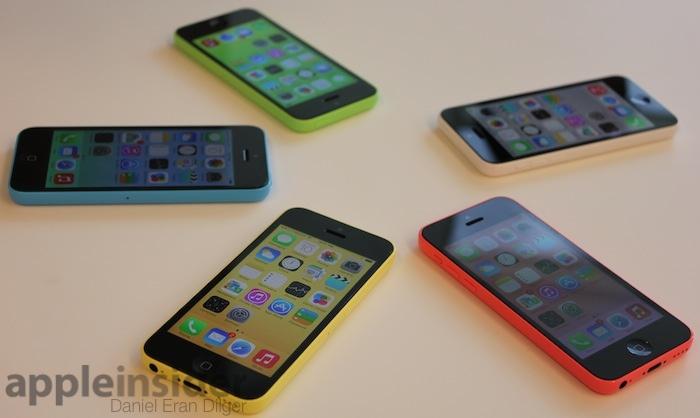
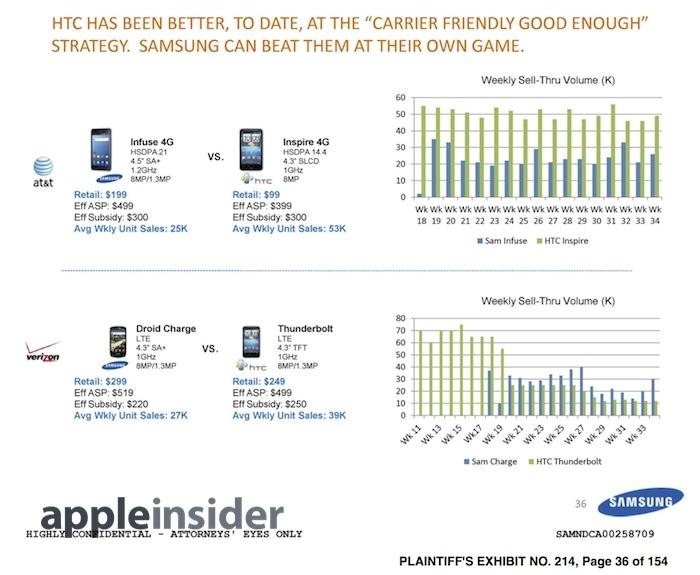
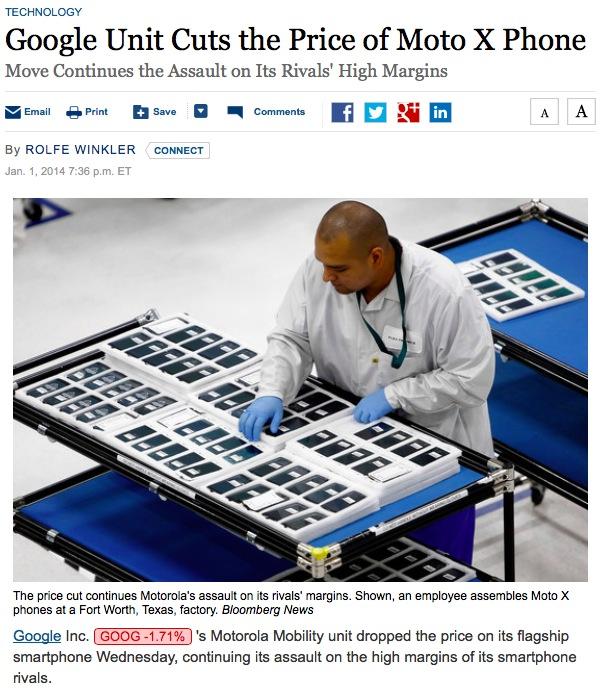
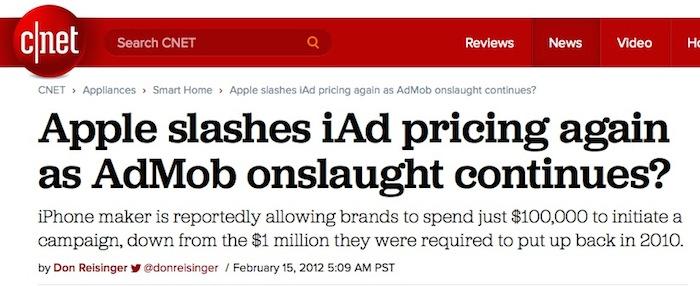

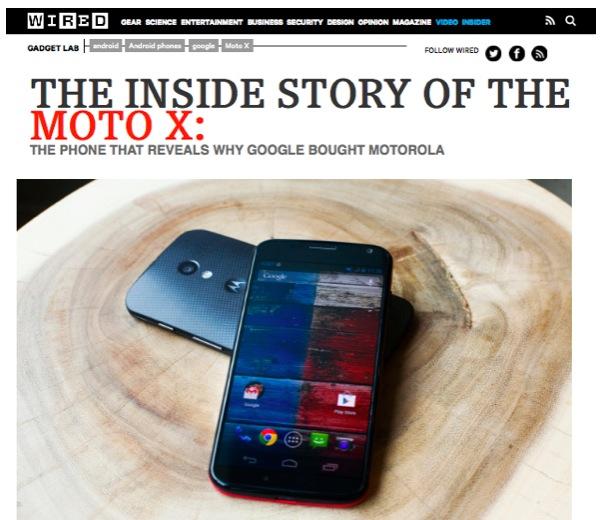







-m.jpg)






 Christine McKee
Christine McKee
 Malcolm Owen
Malcolm Owen
 Marko Zivkovic
Marko Zivkovic

 Andrew Orr
Andrew Orr
 Andrew O'Hara
Andrew O'Hara
 William Gallagher
William Gallagher



-m.jpg)



218 Comments
Amazing article, and right on point. The anti 5c media hysterics has been both hilarious, and pathetic. Not long ago I reqd an article callling it the "biggest failure since the cube". Uh, what? What's also pathetic is how MG Siegler has become a complete Google shill since joining Google ventures, while he used to be one of the biggest apple advocates online. I expected better from him.
I was not wrong. :) I knew that the 5c sold well although the 5s sold a lot more.
The main iOS failures: - Missing true USB ports. Just connect a USB pendrive to share files. - Missing a decent file system (like the Mac has). Just connect a USB pendrive to see and share files. - Jailed. Just connect a USB pendrive to share files. - Sanboxed files and applications. Open any file with any application. - Expensive. Price should be slashed in half. Those are deal breakers for hundreds of millions of people. Will Apple learn or will it go the path of the Mac and iOS will eventually become a niche market?
[quote name="AppeX" url="/t/178868/apples-iphone-5c-ate-up-android-while-googles-moto-x-flopped-why-everyone-was-wrong#post_2523131"]The main iOS failures: - Missing true USB ports. Just connect a USB pendrive to share files. - Missing a decent file system (like the Mac has). Just connect a USB pendrive to see and share files. - Jailed. Just connect a USB pendrive to share files. - Sanboxed files and applications. Open any file with any application. - Expensive. Price should be slashed in half. Those are deal breakers for hundreds of millions of people. Will Apple learn or will it go the path of the Mac and iOS will eventually become a niche market?[/quote] You are confusing iOS with hardware. Apples isn't heading towards becoming a niche market, in fact it's doing fine in the real smart phone market. That's the one with the money.
In general I agree with the sentiment here. ( Which is unusual as I don't always agree with DED. ) However there was of course a recent reduction in the 5C price in the very countries which did well last quarter. That indicates that the demand is elastic. They also said the 4S was selling well. The 4 isn't but that might be its age. So next year a 5C priced at or below the 4S price will sell like gangbusters.